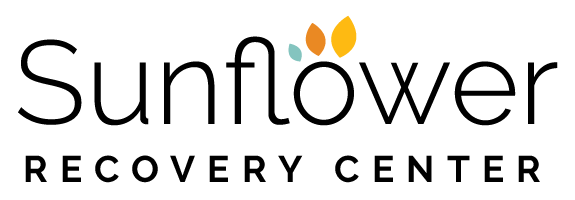When the glow of summer starts to fade, the days get shorter, and the nights stretch on a little too long, some folks start feeling like they’re walking through fog. It’s no coincidence that depression, anxiety, and even substance use tend to increase when the sun sets earlier and temperatures drop. This cycle can become especially tough for those who are also battling addiction, where the change in seasons can deepen feelings of loneliness, lethargy, and a loss of motivation. At Sunflower Recovery, we know how the winter blues can make addiction recovery even more challenging. So let’s break down why it happens, what makes seasonal depression and substance use such a powerful—and risky—combination, and how you can safeguard your mental health this winter.
Seasonal Depression & The Brain
Seasonal depression, also known as Seasonal Affective Disorder (SAD), is a type of depression triggered by seasonal changes. Typically, it shows up in the fall and peaks during winter, when there’s less natural sunlight. But what’s happening in the brain that causes such a noticeable shift?
Our brain chemistry is sensitive to light, which influences our serotonin and melatonin levels. Serotonin, known as the “feel-good” chemical, is crucial for mood regulation. When sunlight decreases, so does our natural serotonin production, which can lead to feelings of sadness, fatigue, and general moodiness. At the same time, melatonin—a hormone responsible for sleep and our internal body clock—gets overproduced, leaving us feeling drowsy, sluggish, and often mentally foggy. This imbalance can result in low energy, oversleeping, irritability, and a general lack of motivation.
For someone struggling with addiction, these changes can be more than just a seasonal inconvenience. The brain’s natural reward pathways, already altered by substance use, become even more sensitive to changes in mood, making the drive for “quick fixes” through substances even stronger.
How Seasonal Depression Heightens the Risk of Substance Use
The link between depression and addiction is well-known; people often turn to substances as a way to cope with mental health symptoms. But with SAD, the risk intensifies. Here’s why:
- Mood Instability: SAD brings on irritability and feelings of hopelessness. What’s a quick and easy way to combat those feelings? Drugs and alcohol. Those struggling with addiction often seek relief through substances, which offer temporary mood boosts but ultimately worsen depressive symptoms. What starts as a way to “numb out” becomes an increased dependency, creating a dangerous feedback loop.
- Isolation: The colder, darker months often lead people to stay indoors. Isolation can be tough for anyone, but for those in recovery, loneliness can be a big trigger for relapse. Social support is one of the strongest recovery tools, and when it’s harder to get out, the risk of relapse grows.
- Low Energy & Motivation: Depression zaps motivation, so even daily tasks feel monumental, let alone sticking to a recovery routine. For someone struggling with addiction, getting through another day without using can already be a challenge. Add in the lethargy from SAD, and it can feel nearly impossible.
- Sleep Disruptions: SAD can lead to both oversleeping and sleeplessness, and the inconsistency can destabilize mental health. Since sleep quality directly affects emotional regulation, it becomes harder for someone to manage cravings or resist the impulse to use substances.
Tools for Battling Seasonal Depression
There’s good news for anyone struggling with seasonal depression and addiction: there are plenty of strategies to manage both, even on the hardest days. Here are some of our favorite, effective techniques that we encourage at Sunflower Recovery:
- Light Therapy: Light therapy has shown promise in boosting serotonin levels and elevating mood. Using a “SAD lamp” for 20-30 minutes each morning can make a significant difference in mood regulation and energy levels.
- Structured Daily Routines: When the days feel bleak, having a predictable routine can anchor you. At Sunflower, we work with clients to develop personalized routines to support recovery. A routine filled with positive, structured activities can stabilize emotions, reduce anxiety, and lower the likelihood of relapse.
- Outdoor Time: Even in colder months, exposure to natural light—even just 10-15 minutes outside each day—helps regulate mood. In fact, we encourage everyone to get outside whenever possible, the positive impact of fresh air and nature is not to be underestimated.
- Nutritional Support: Balanced nutrition plays a crucial role in mental health. Certain foods can boost serotonin and provide sustained energy, making it easier to manage depressive symptoms. We encourage diets rich in complex carbohydrates, omega-3s, and leafy greens, which support mental well-being.
- Building a Support Network: Recovery is a team effort, and it’s essential to have people you can reach out to when seasonal depression hits. Sunflower’s alumni groups create an environment of support, so no one has to face their struggles alone. Our alumni program ensures that clients remain connected to supportive networks even after completing treatment.
- Mindfulness & Meditation: Practices like deep breathing, meditation, and mindfulness exercises can help people maintain balance. Incorporate these into daily routines, especially during the darker months when stress and cravings might be heightened.
Why Getting Professional Help Matters
Seasonal depression can exacerbate addiction, which is why addressing both issues is so important. At Sunflower Recovery, our clinicians are skilled in dual-diagnosis care, which means we treat both substance use and co-occurring mental health conditions. This holistic approach helps clients understand the connection between their mood shifts and their substance use, empowering them with tools to manage each effectively.
One common misconception we see is the idea that you should “just push through” seasonal depression. But it’s okay—and often essential—to seek professional help.
Moving Forward
While we can’t change the weather, we can change our approach to it. The darker days don’t have to mean darker times. With the right support, mindset, and tools, you can navigate both addiction and seasonal depression, and we’re here to help you find your way out of the fog and into brighter days. Give us a call today.

